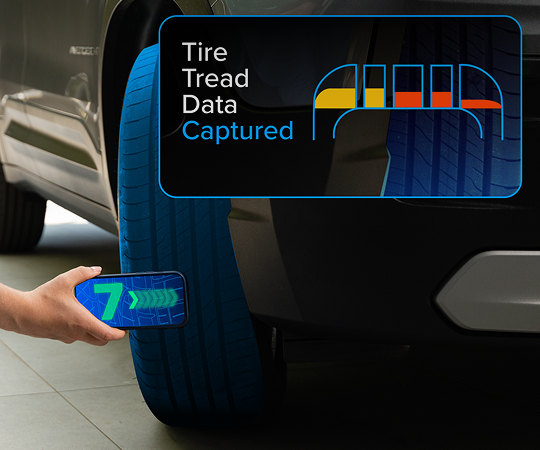
Value of Business Intelligence in the Automotive Industry and Tire Retail
Business intelligence is becoming one of the most important components of the automotive industry and tire retail market. The benefits of business intelligence practices can create significant value for companies.
In a recent podcast segment with Alexandra Eckstein at SKF, a leader in auto aftermarket supplies, she shared with us what going digital really means. Digitalization means “investing time, money, and people in changing internal processes. Once a company has taken this investment, its process will be fully optimized in terms of outcome, in terms of efficiency, and in terms of financial savings. What has to be there is the openness to change and the willingness to learn.”

What Are the Benefits of Business Intelligence?
Business intelligence is the process of gathering data, analyzing it, and applying that information to business activities with the purpose of benefiting the company and the customer. The automotive industry continues to lag in this area, and it’s hurting those who have yet to take the steps necessary to move towards it.
There are plenty of reasons why business intelligence needs to be a priority:
- Competition is implementing it
- Pricing pressures continue to impact business bottom lines
- Shrinking margins make cutting costs critical and refining efforts more important
- Capturing and managing data improves a company’s ability to meet their customers
In many ways, business intelligence is a critical tool for implementation. Consider some of the core benefits it brings to the table.
Create standards within the industry
We recently did an interview with Inter Cars SA’s Momchil Kovachev, who is the CDO. He has a great perspective on how the industry really lacks this digital standard when it comes to managing automotive service and retail operations.
“Currently, in our industry, we are lacking a standard on how workshops can manage the availability of their [service] and having a booking system. There’s no standard for this. There’s a standard for spare parts, but for exchanging this information, there is no standard. This is why we as an industry are lagging behind.”
Create better insight into customer spending habits
Another valuable tool that business intelligence provides is the ability to find patterns in customer spending habits. This is essential for today’s organizations so that they are not wasting money and time on processes that do not yield profitable outcomes. By better understanding customer buying habits, it’s possible to focus heavily on where the profit potential is.
Improve service
In the world we live in right now, where competition is so readily available to customers, it is essential to do all that is possible to improve customer service levels. One of the best ways to do that is to facilitate a smoother interaction and process. That includes improving supply chain issues, reviewing sales, and ensuring products are available. Understanding customer buying habits helps here, too.
Data can reveal customer pain points—the most common areas where customers turn to a competitor. That way, companies can address this and create another solution that’s better capable of meeting their needs. This helps reduce the number of customers lost during the process.
Customers themselves want tools to facilitate this process. They want and need a way to connect with their service providers to make booking an appointment or purchasing a spare part far easier and more efficient to do. They also don’t want to have to tell the repair shop their car’s history every time they stop in. Data helps to drive loyalty with customers in this way.
Improve inventory management
Many companies looking to reduce losses have cut back on inventory. Having a lot of money tied up in products on the shelf limits a company’s ability to expand and grow. With more data, it’s possible to determine what is selling, what is needed, and what is not.

Business Intelligence Is a Critical Investment
From small steps to comprehensive changes, organizations that implement business intelligence more readily are likely to move forward while also meeting and beating their revenue goals.



